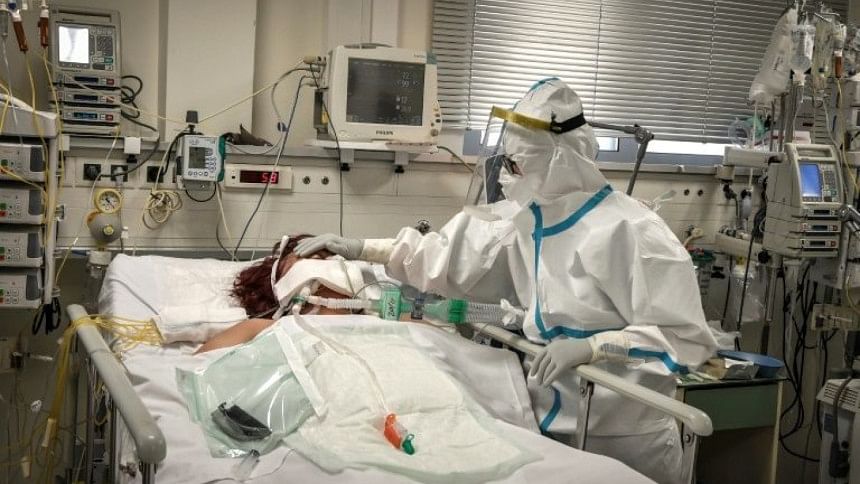G20 pushes for ‘equitable’ Covid vaccine access

G20 nations yesterday pushed for ensuring equitable distribution of coronavirus vaccines worldwide and reaffirmed support for debt-laden poor countries as the pandemic led to further closures in parts of the world.
With cases surpassing 12 million in the United States, the highest in the world, many Americans were nonetheless heading to airports to travel for next week's Thanksgiving holiday despite health officials' warnings to stay home.
Some US states were imposing new restrictions, including California, where a 10 pm to 5 am curfew was taking effect.
On the opposite side of the Atlantic, British Prime Minister Boris Johnson plans to announce that restrictions across England are to end on December 2 as planned, his office said.
But the lockdown will be followed by a return to a three-tiered set of regional curbs.
Britain has suffered more than any other country in Europe from the coronavirus, with more than 54,000 deaths from 1.4 million cases.
In the Middle East, Iran announced it had shut non-essential businesses in over half its cities and towns for up to two weeks and introduced movement restrictions.
The antibody therapy approval in the United States offers some hope for those infected, though a relatively small number of doses will be available in the coming weeks.
The same therapy was used to treat President Donald Trump when he was sickened with the virus.
The green light for drugmaker Regeneron came after REGEN-COV2, a combination of two lab-made antibodies, was shown to reduce Covid-19-related hospitalizations or emergency room visits in patients with underlying conditions.
There has also been positive news on vaccines in recent days from US firm Pfizer and its German partner BioNTech.
On Friday, the companies requested emergency approval of their vaccine candidate, becoming the first in the United States or Europe to do so, with trials showing it was 95 percent effective.
Hot on the heels of these companies is a vaccine developed by another biotech firm, Moderna, which says its product is also about 95 percent effective.
But despite those developments, there are concerns that countries across the world will have insufficient access to vaccines, and G20 nations gathered for a virtual summit highlighted those worries.
The leaders also struck a unified tone on supporting "multilateral" trade as well as the global fight against climate change, but the closing document lacks firm details on many of the issues dominating the virtual summit hosted by Riyadh.
The two-day gathering that began Saturday comes as international efforts intensify for a large-scale rollout of coronavirus vaccines after a breakthrough in trials, and as EU and other leaders call for G20 nations to plug a $4.5-billion funding shortfall.
"We have mobilised resources to address the immediate financing needs in global health to support the research, development, manufacturing and distribution of safe and effective Covid-19 diagnostics, therapeutics and vaccines," the draft document said.
"We will spare no effort to ensure their affordable and equitable access for all people, consistent with members' commitments to incentivise innovation."
The communique offered no details on how the effort will be funded.
There could be changes in the final version of the document, which will be released later yesterday by the Saudi hosts.
In a comment echoed by other world leaders, French President Emmanuel Macron said Saturday the coronavirus crisis was "a test for the G20", stressing there "will be no effective response to the pandemic unless it is a global response".
G20 nations have contributed more than $21 billion to combat the pandemic, which has infected 56 million people globally and left 1.3 million dead, and injected $11 trillion to "safeguard" the virus-battered world economy, summit organisers said.
But the group's leaders face mounting pressure to help stave off possible credit defaults across developing nations.
G20 nations have extended a debt service suspension initiative (DSSI) for developing countries until June next year, but UN Secretary-General Antonio Guterres has pushed for a commitment to extend it until the end of 2021.
The draft communique, however, did not offer a firm commitment.
G20 finance ministers will examine the recommendation when the IMF and World Bank meet next spring "if the economic and financial situation requires" an extension by another six months, it said.

 For all latest news, follow The Daily Star's Google News channel.
For all latest news, follow The Daily Star's Google News channel. 



Comments